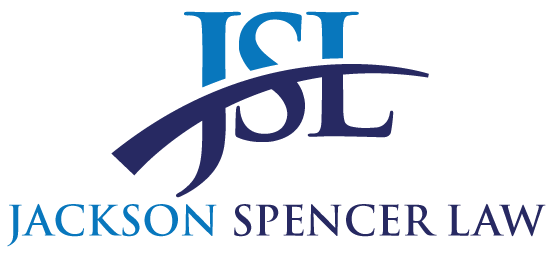Pregnancy can be both exciting and overwhelming. Losing a job or facing discrimination while pregnant is stressful and frightening for any mom-to-be. In 2018, the Equal Employment Opportunity Commission (EEOC) awarded $16.6 million in monetary awards for pregnancy discrimination charges, a substantial increase from years past.
If you feel you are being treated unfairly due to pregnancy or childbirth, you have rights.
At Jackson Spencer Law, we’ve helped women battle discrimination in Dallas and throughout Texas. Read on to find out how to protect yourself and bolster your case if you’ve been discriminated against or harassed in the workplace and contact us for a free consultation with our legal team.
Pregnancy Discrimination and the Law
There are a number of federal laws that prohibit discrimination on the basis of pregnancy or childbirth. The Pregnancy Discrimination Act (PDA) forbids discrimination based on pregnancy with respect to hiring, firing, pay, job assignments, promotions, layoffs, training, fringe benefits and any other term or condition of employment.
The Americans with Disabilities Act (ADA) requires certain employers to provide reasonable accommodations for individuals with disabilities. This includes certain pregnancy-related conditions such as gestational diabetes and preeclampsia. If you are temporarily unable to perform specific job duties due to a medical condition related to pregnancy or childbirth, your employer must treat you in the same way they treat any other temporarily disabled employee. This means some employers may have to provide reasonable accommodations to help you fulfill your job duties during and just after pregnancy.
It is also unlawful to harass a woman because of pregnancy, childbirth, or pregnancy-related medical conditions. If the harassing behavior is frequent or severe enough to create a hostile work environment or it leads to adverse employment decisions, you may have an actionable claim.
It is also important to note that harassment may be the result of anyone’s actions, including clients or customers of a business, not just supervisors. If you report a customer’s ongoing harassment to supervisors and no action is taken to end the harassment, your employer may be violating the law.
The Fair Labor Standards Act, or FLSA, also provides nursing mothers with the right to express milk in the workplace. Certain employers are also required to comply with the Family Medical Leave Act (FMLA) and provide 12 weeks of unpaid leave for new parents that have worked for the employer at least 12 months prior to the need for leave. Some Texas employers offer paid leave, however payment during leave is not mandated by law.
As with most other anti-discrimination and harassment laws, employers cannot retaliate against employees who avail themselves of their rights under the PDA, ADA, FLSA, or FMLA. If you report unlawful activity or initiate legal action, your employer is prohibited from “punishing” you or treating you unfairly for making a report.
Unfair vs. Unlawful Treatment
While some forms of discrimination are easy to spot, identifying what is illegal as opposed to unfair can be tricky. The differences between “unfair” and “illegal” lie at the heart of most discrimination, harassment, and retaliation cases.
To strengthen your case, keep track of the unfair treatment in a notebook if you feel you are being treated unfairly at work. Keep your notebook at home to prevent its discovery or destruction by employers who may wish to “cover their tracks.” Document and identify the people who are being treated more fairly than you and keep track of how management’s treatment of you differs from others. If you end up pursuing legal remedies, this evidence will be crucial.
Your Next Steps
If you feel your employer’s actions are in violation of the law or your rights, there are a number of steps you can take to protect yourself and build a strong case.
First and foremost, maintain composure even if others around you are not behaving professionally. Lashing out may weaken your chances of legal success. Likewise, refrain from complaining about your company, boss, or co-workers on social media. Social media posts are frequently used against employees in today’s legal environment.
If others are promoted above you, or you are reprimanded, ask your manager for specific, written feedback regarding what you can do to improve. If you make the request for feedback or report unlawful behavior in person, follow up your request with an email to create a paper trail with proof of your conversations.
Even if the harassing or discriminatory treatment is coming from fellow co-workers or clients, make sure you report the behavior to someone in a supervisory position. Keep in mind that communication with supervisors may be used as evidence so it is important to use professional language.
Finally, and most importantly, speak to a lawyer if you feel you are being discriminated against or harassed due to pregnancy or childbirth.
At Jackson Spencer, our lawyers help employees who have experienced unfair and unlawful treatment in the workplace, including women who have experienced pregnancy discrimination. We know the law and we aren’t afraid to fight for your rights as an employee, no matter how powerful your employer may be. We’ve also written extensively about how employees are protected from discrimination in the workplace, and what to do when you feel discriminated against by your employer.
Our attorneys take pride in the results we get for Texas employees. If you think you are being discriminated against at work, contact our experienced legal team in Dallas to determine the best recourse for you.



